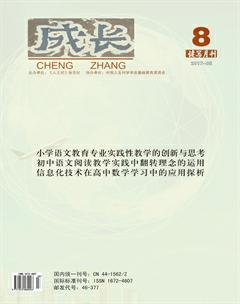Looking the Other Side: the Clash Between Reality and Imagination
Sun+Yan
In the film Blue Jasmine directed by Woody Allen, Jasmine, the protagonist took the first flight with her Louis Vuitton luggage and reached her middle class adoptive sister Gingers San Francisco cramped apartment. Her rich husband, a?devilishly handsome Manhattan financier Hal had committed suicide in prison for tax evasion and fraud; her stepson dropped out university for shame and humiliation and left Jasmine to where she did not know. The homes, the cars, the furs, the jewels, the furniture all went to the government, leaving the penniless Jasmine nothing but her clothes and bags so that she had but to move in with her sister whom she had always contempt and despised until she gets back on her feet.
As the title suggested, Jasmine was blue, in another word, she was deeply depressed. Once, she was a Park Avenue socialite, bathed in privilege, spoiled by her husband, but after all these traumas, Jasmine developed a habit of talking to herself, babbling about her life, haranguing at anyone unlucky enough to be in earshot, constantly reaching for a drink, gasping for breath, eyes darting with cornered panic, thoughts millions miles away. Having being a woman constantly teetering on the edge of collapse, she was addicted to booze and prescription drugs.
It seems that Jasmines tragedy should be attributed to her husband Hal who was a cheap crook, cheated on her and stole other peoples money. But Jasmine is not beyond blame. Though she declared that she did not know Hals crime, that she knew nothing about economy or business, actually she knew exactly of what was going on around her for the clue gave away as she talked to herself at the end of the film, “of course, you know, I probably did suspect that not everything Hal did was always 100-percent aboveboard”. It all had to do with her attitude: she constantly looked the other way. She averted her eyes from reality and the truth she does not want to see, never admit the clash of reality and the imagination and immersed herself in the delusion that she owned wealth and love. Her desire for wealth and love or aggression drives is what Freud termed as id characterized by a tremendous and amorphous vitality functioning to fulfill the primordial life principle, which Freud considers to be the pleasure principle without any consideration of value, good, evil or morality. For the individual to function in the society, the impulse of id can not focus on satisfaction, they must respect the reality of the world and the superego. So ego and superego are the other two agents in Freuds structural model of the mind. The former is a regulating agency, governed by reality principle to protect the individual. As Freud points out, “In popular language, we may say that ego stands for reason and circumspection, while the id stands for the untamed passions.” It is ego that is supposed to balance the two opposing forces of id and superego. Largely unconscious and dominated by morality principle, the latter, superego, another regulating agent, representing the acquired and internalized set of values and ethics and giving the individual the sense of what is right and what is wrong to feel, think and do with the function of protecting the society. Therefore, generally speaking, when a womans id impulse or the desire to remain the golden existence with her husbands money and a happy marriage life conflicts with the superego, the sense that her husband business and extramarital affairs are illegal, feelings of anxiety would come to surface, often accompanied by feelings of guilt, embarrassment, and shame. When anxiety becomes too overwhelming, it is then the place of the ego to employ defense mechanisms to protect the individual by changing the id impulses into acceptable forms, or by unconsciously blocking of these impulses and thus reducing anxiety. She could have a talk with him and encourage him to stop illegal business, confess his crime and start all over again. She could get a divorce, move out of the house and find a better man or forgive him, have him make promise to be loyal to his wife. In doing so, her ego functions well in balancing the two forces of id and superego and protect herself from anxiety. But in Jasmines case, her ego was shattered for failing to balance the two forces and caused her a mental problem. Jasmine or her superego was supposed to drive her to debunk Hals criminal actions and his infidelity to marriage out of morality. But her id and desire for wealth is more powerful and thus the ego shut its eye to reality.
Her denial of knowing her husbands crime did not prevent her husband from being a phony. Her silence gave him more excuses to continue his crime, and made the bad situation even worse. She persuaded her sister and her ex-husband Augie who had won a lottery with 200,000 bucks to invest with Hal, but lost every penny of their money, their once-in-lifetime chance of being rich, which may be a reason for their divorce. After her husbands imprisonment, she told people around her that she knew nothing about financial schemes as excuse for her mistake and showed no guilt for her sister and by doing so avoiding self-condemnation or condemnation by others, which is the rationalization, another ego defense mechanism.

